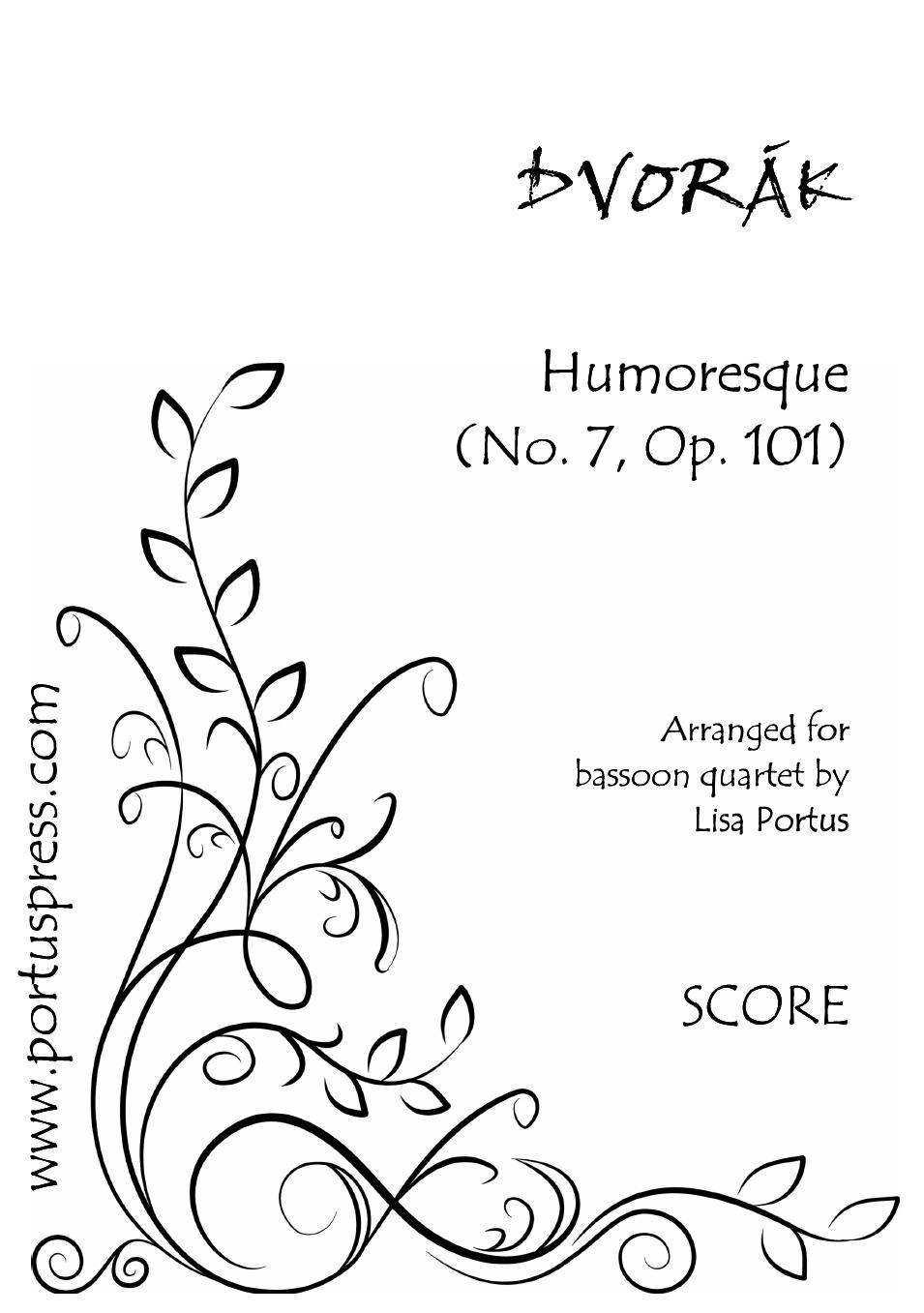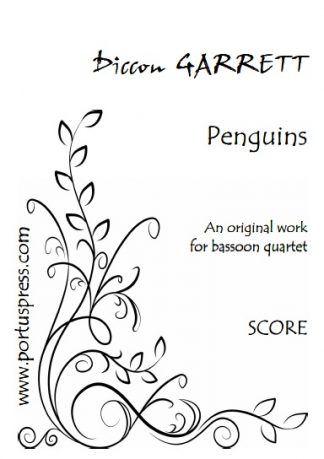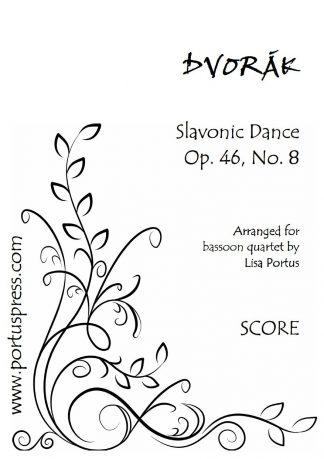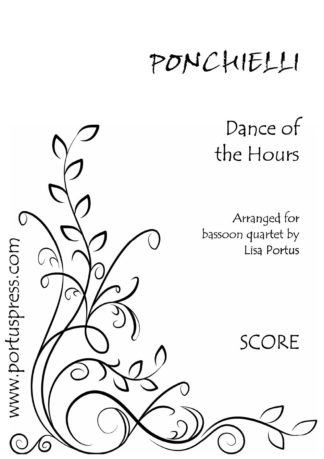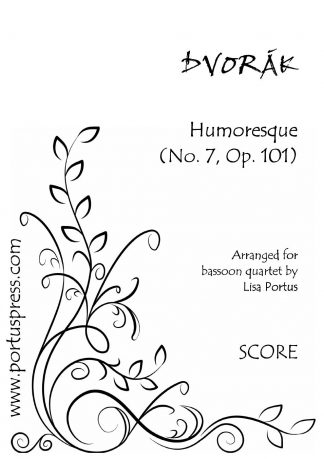Description
Although firmly established as a classical composer of the Romantic era Dvorák (1841-1904) drew inspiration directly from the folk music and dances of his native Czechoslovakia. He was also influenced by Wagner and Brahms, the latter of which became a firm friend after being a judge in a composing competition that Dvorák won three years running! From 1892 to 1895, Dvorák was director of the National Conservatory of Music in New York and it was during this period that he wrote probably his best-known work, the Symphony No. 9 (From the New World). A year later, in 1894 he came his Humoresques – eight works for solo piano that were amongst his last for keyboard.
A humoresque is characterised by its whimsical or fanciful composition – and that is exactly what we have here, in the seventh Humoresque, and most famous, of the collection. Its popularity has spawned a great many arrangements for many different instruments and ensembles and works very well on four bassoons.

